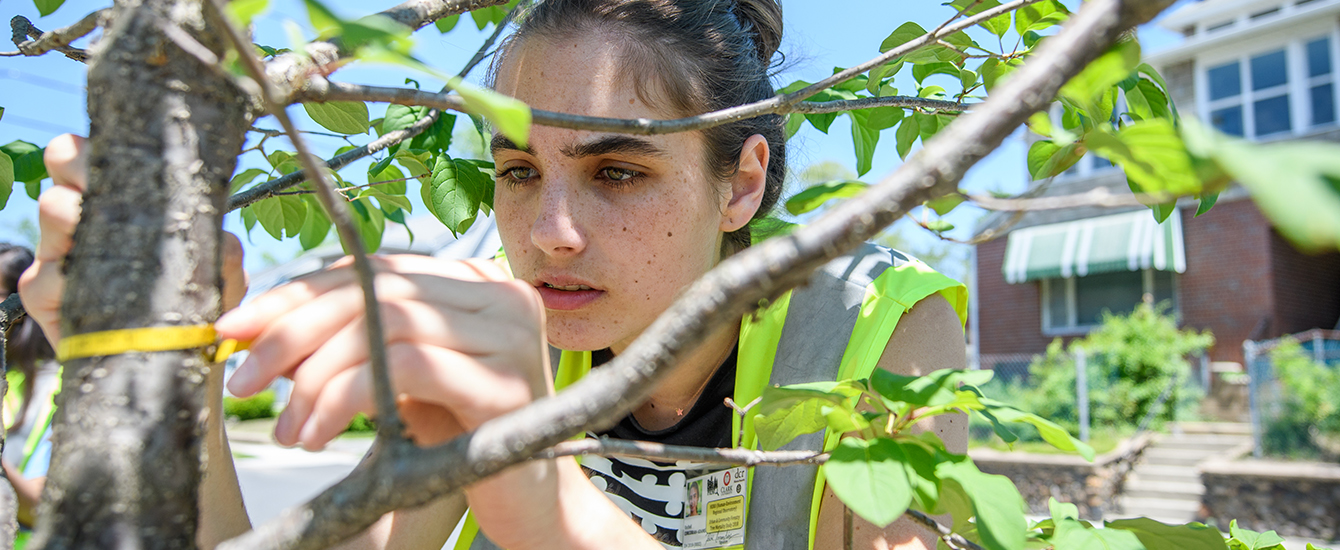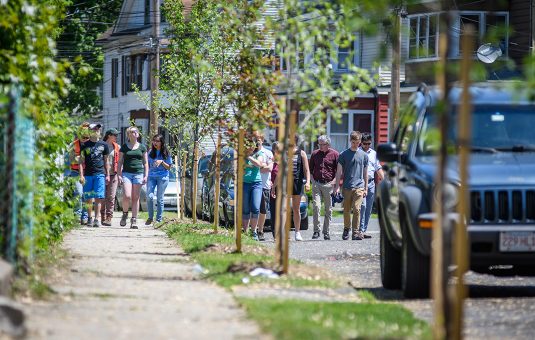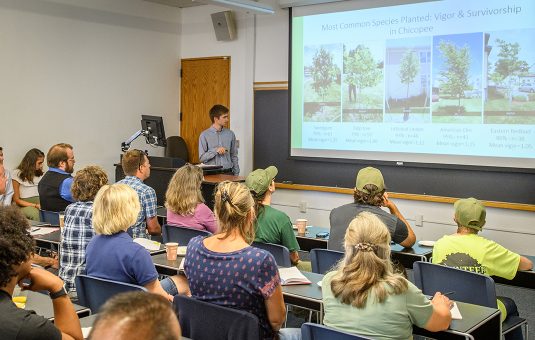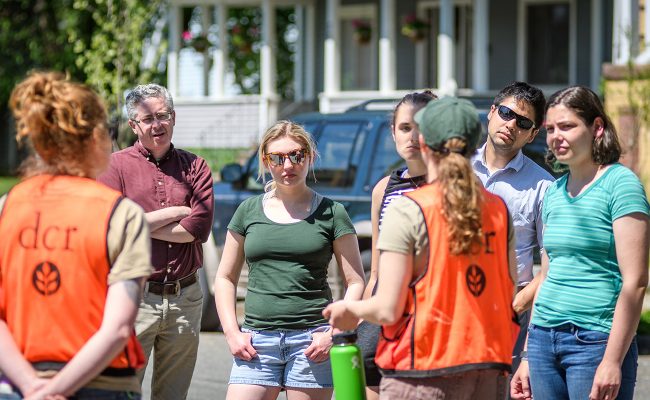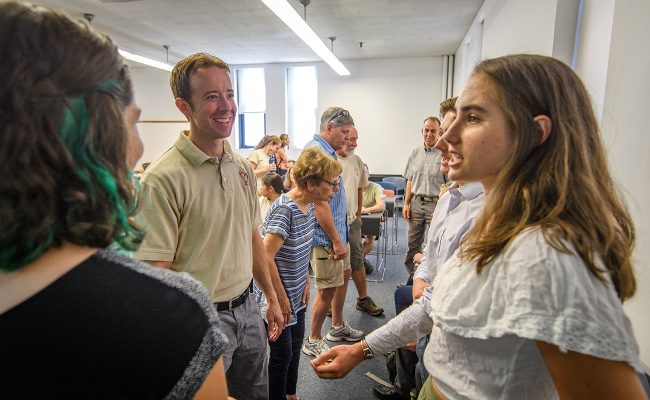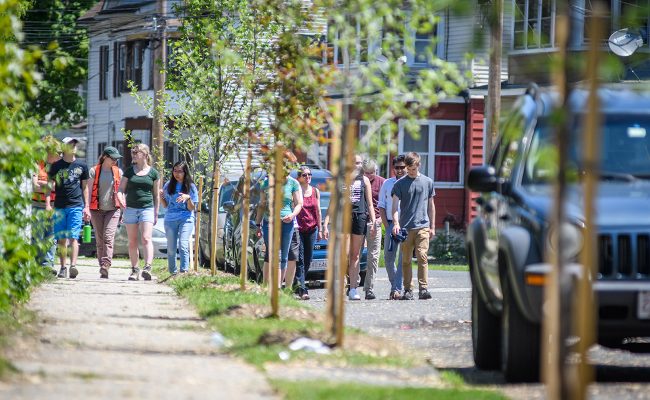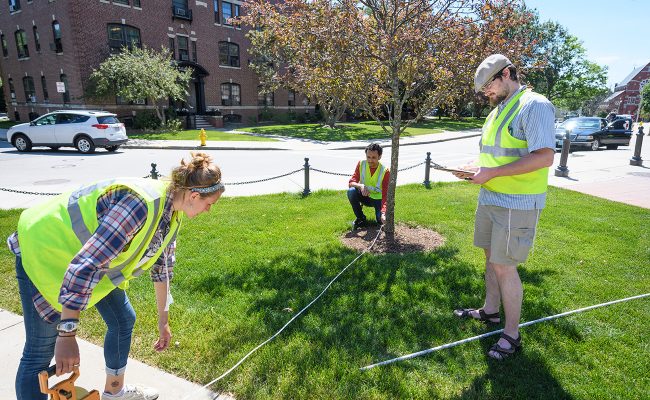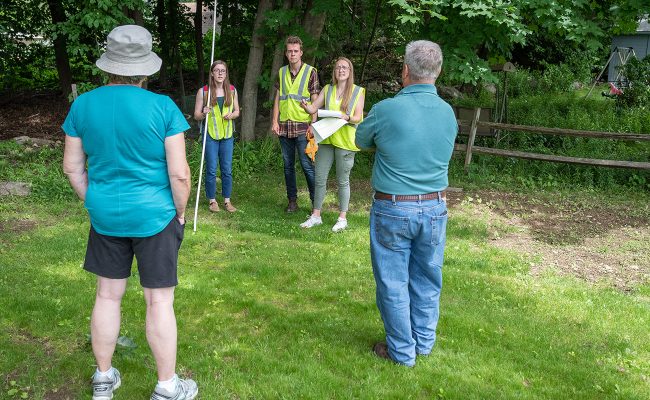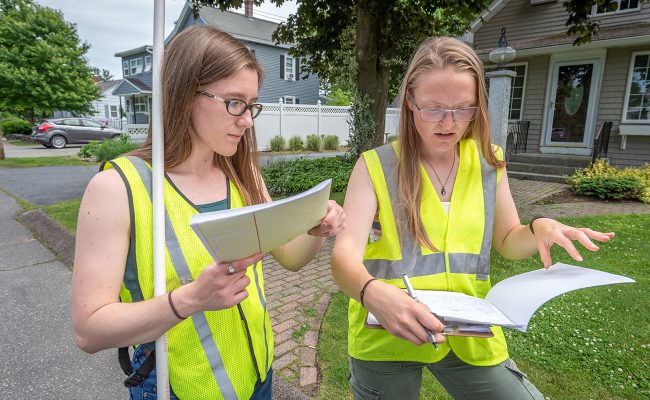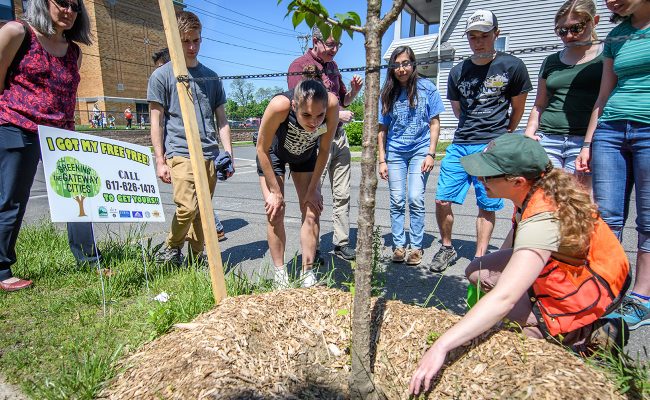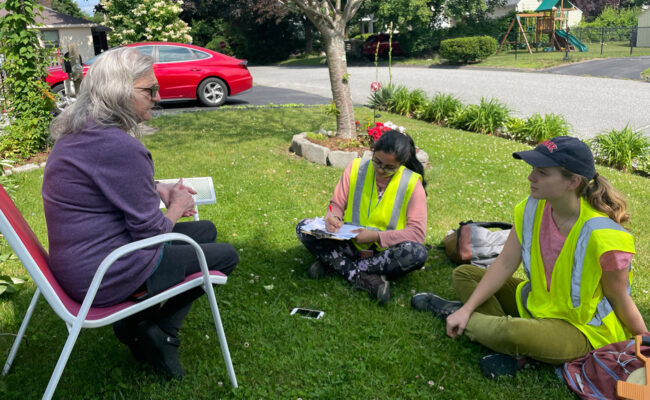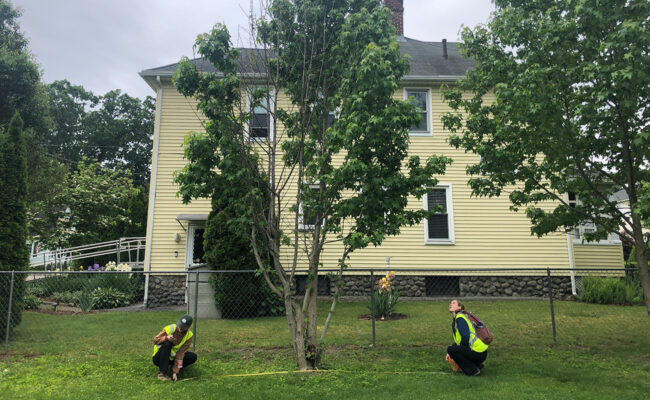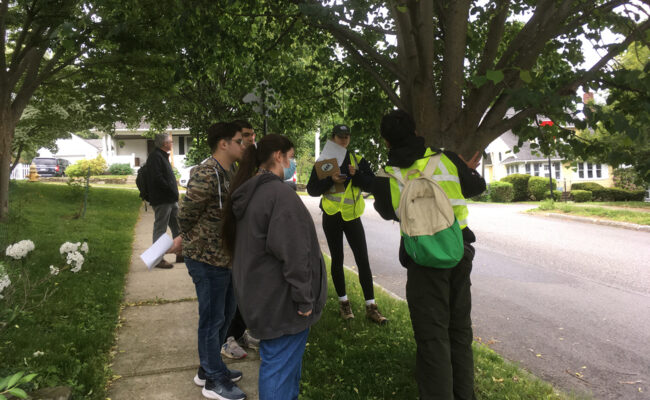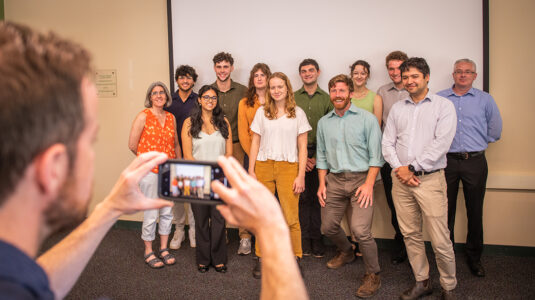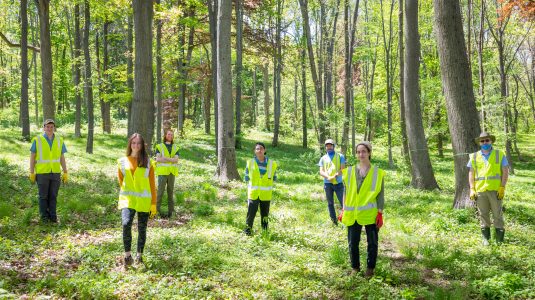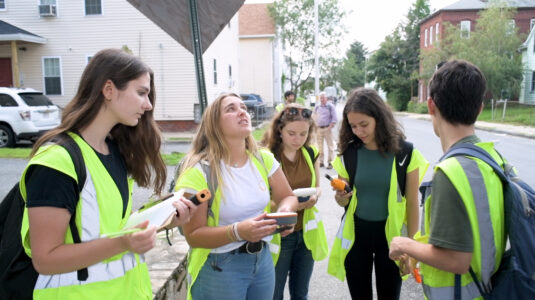Presentation sheds light on health of new plantings
The Human-Environment Regional Observatory (HERO) program is a unique undergraduate-graduate-faculty experience that engages in research on human-environment relationships in Massachusetts. Starting in the summer, HERO Fellows conduct hands-on research under the mentorship of Clark University faculty. Over 25 years and counting, the program has sponsored 200 undergraduate HERO Fellows and a number of graduate students; received almost $3.5 million in research funding, much of it from the National Science Foundation; and generated approximately 45 book chapters and articles in peer-reviewed journals. The program currently is sponsored by the John T. O’Connor ’78 Fund.

